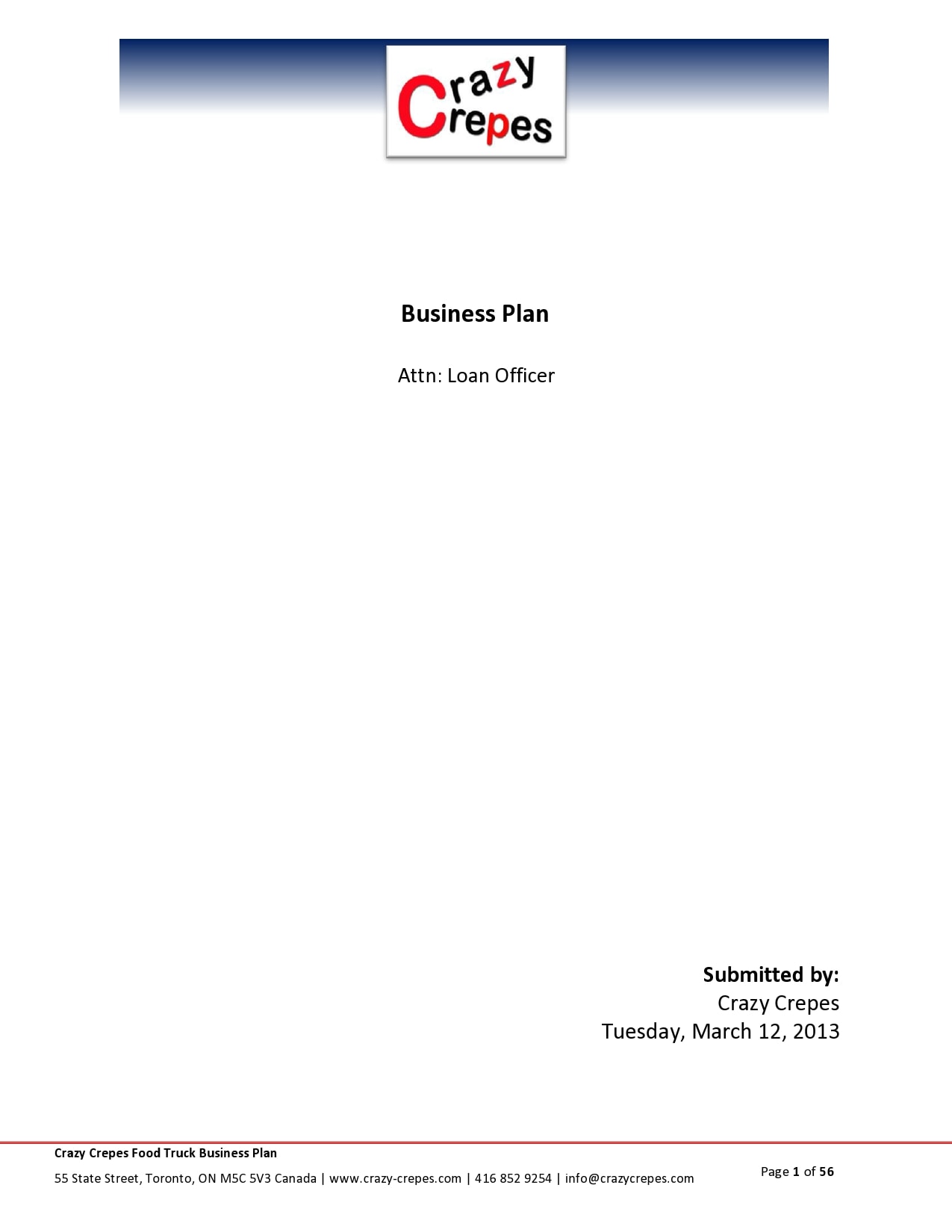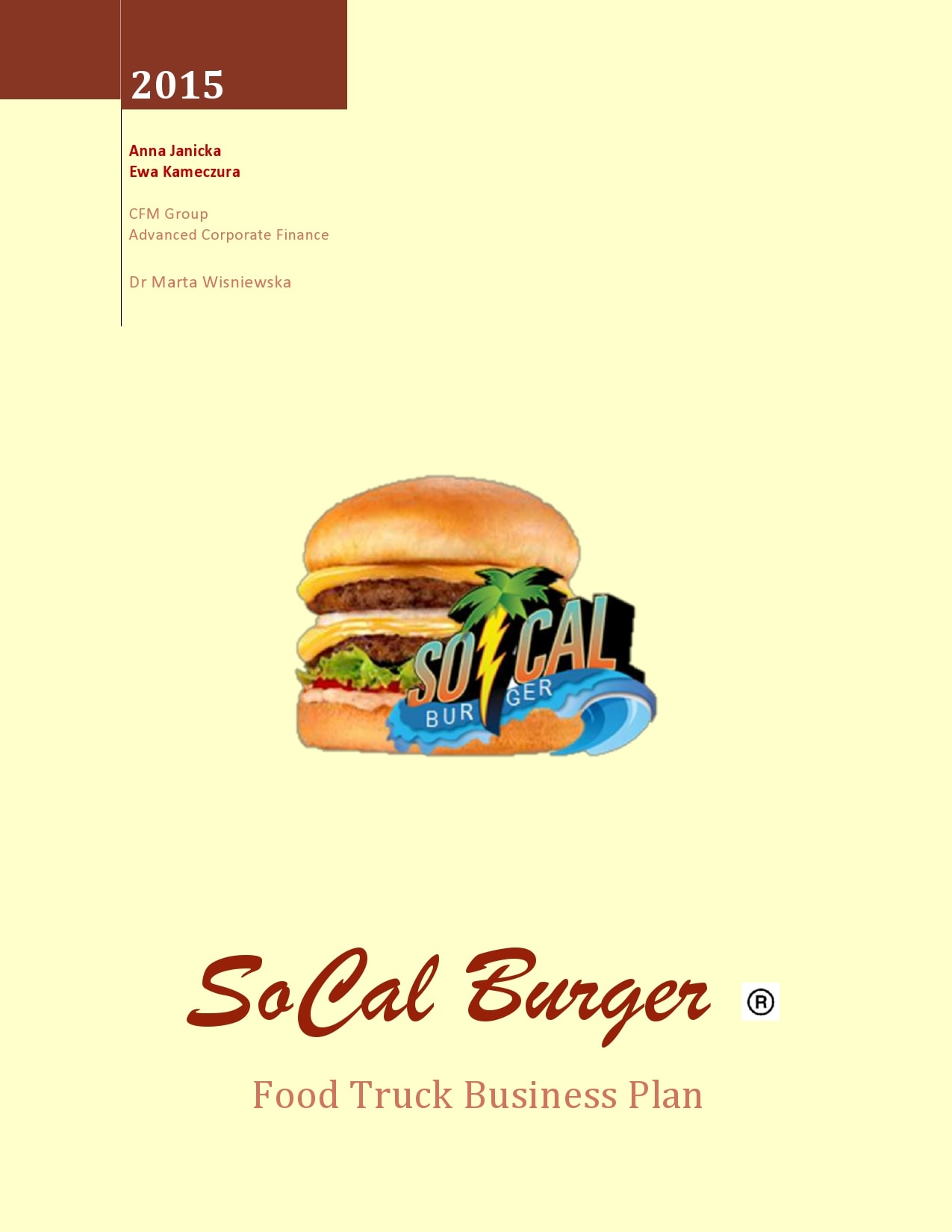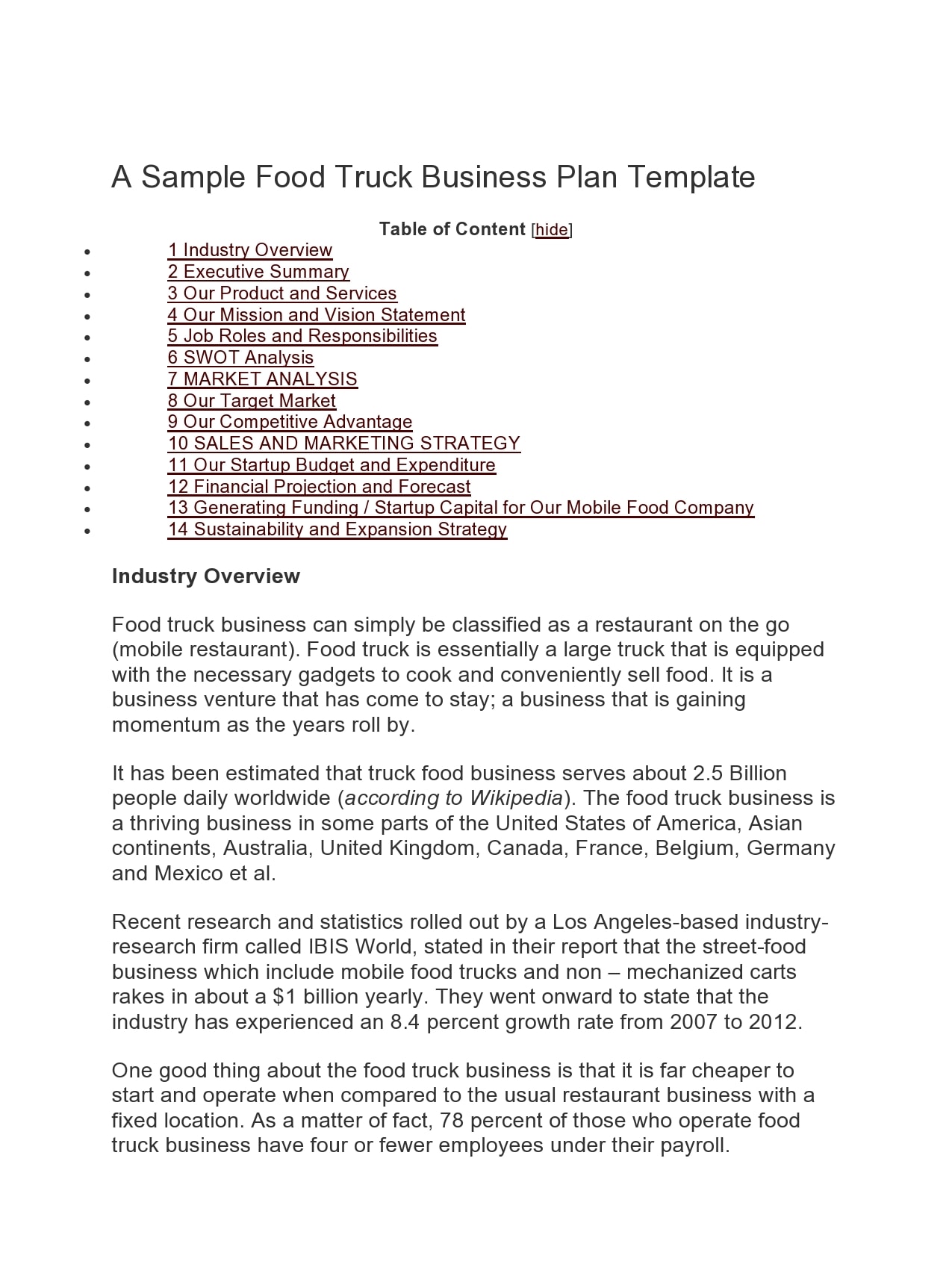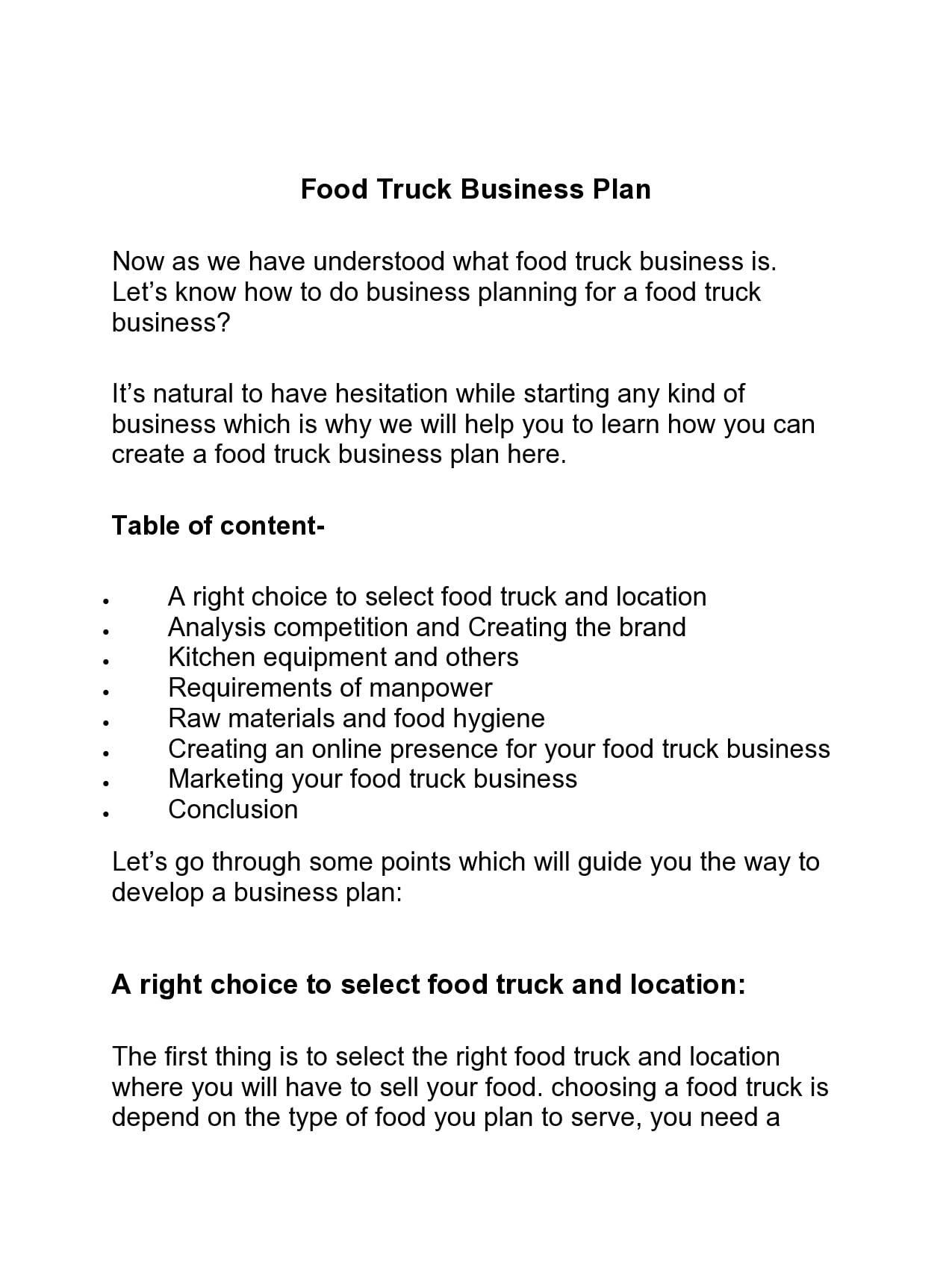
If you’re considering starting a food truck business, creating a solid business plan is one of the most important steps you can take. A well-crafted business plan is a roadmap for your success, outlining your goals, strategies, and financial projections.
This article will discuss everything you need to know about creating a food truck business plan, including why it’s important, how to make one, and tips for success.
What is a Food Truck Business Plan?
A food truck business plan is a comprehensive document that outlines the key aspects of your food truck business. It serves as a guide for you and potential investors, providing an overview of your business concept, target market, marketing strategies, financial projections, and more.
By having a version of your business plan, you can easily share it with others and refer to it whenever needed.
Why is a Food Truck Business Plan Important?
A food truck business plan is crucial for several reasons:
- Guidance: It provides a roadmap for your business, helping you stay focused on your goals and objectives.
- Investor interest: A well-prepared business plan can attract potential investors who may be interested in funding your food truck venture.
- Financial planning: It helps you determine the financial feasibility of your business, including projected revenues, expenses, and profitability.
- Marketing strategies: Your business plan outlines your target market and marketing strategies, helping you reach your customers effectively.
- Operational efficiency: By having a plan in place, you can streamline your operations and make informed decisions to maximize efficiency.
How to Create a Food Truck Business Plan
Creating a food truck business plan may seem like a daunting task, but by following these steps, you can create a comprehensive and effective plan:
1. Executive Summary
The executive summary is the first section of your business plan and provides an overview of your food truck business. It should include a brief description of your concept, target market, and competitive advantage. This section should capture the reader’s attention and make them want to learn more about your business.
2. Business Description
In this section, provide a detailed description of your food truck business. Include information about your menu, pricing strategy, location, and any unique selling points. Describe your target market and how you plan to attract and retain customers. This section should demonstrate your understanding of the food truck industry and your ability to meet customer demands.
3. Market Analysis
Conduct thorough market research to identify your target market and analyze your competitors. Understand the demographics, preferences, and needs of your potential customers. Evaluate the strengths and weaknesses of your competitors and highlight how your food truck will stand out in the market.
4. Marketing Strategies
Outline your marketing strategies in this section. Explain how you plan to promote your food truck business and attract customers. Consider using social media, local advertising, and partnerships with local businesses to increase your visibility. Include a timeline and budget for each marketing activity.
5. Operations and Management
Detail the operational aspects of your food truck business, including the equipment you’ll need, staffing requirements, and daily operations. Provide information about your team and their roles and responsibilities. Explain how you plan to maintain quality and consistency in your food and service.
6. Financial Projections
Include detailed financial projections to demonstrate the financial viability of your food truck business. Estimate your startup costs, monthly expenses, and projected revenues. Consider factors such as food costs, fuel expenses, permits, and licenses. Use this information to create a realistic financial forecast for the next three to five years.
7. Funding Request (if applicable)
If you’re seeking funding for your food truck business, clearly state your funding request in this section. Explain the amount of funding you need and how you plan to use it. Provide information about your potential investors and the return on investment they can expect.
Examples of a Food Truck Business Plan




























Tips for a Successful Food Truck Business Plan
Here are some tips to ensure the success of your food truck business plan:
- Be specific and detailed: Provide specific information and details about your food truck concept, target market, and financial projections. This will showcase your knowledge and planning skills.
- Stay organized: Use headings and subheadings to structure your business plan and make it easy to navigate. Use bullet points and lists to break up information and make it more reader-friendly.
- Be realistic: When creating financial projections, be realistic and conservative. Base your estimates on thorough market research and industry benchmarks.
- Seek feedback: Share your business plan with trusted advisors or mentors and ask for feedback. They can provide valuable insights and help you identify any gaps or areas for improvement.
- Update regularly: Your business plan should be a living document that evolves as your business grows. Regularly review and update it to reflect changes in the market, your goals, and your strategies.
By following these guidelines and creating a comprehensive food truck business plan, you’ll be well-positioned to launch and grow a successful food truck business. Remember, a well-prepared plan is essential for attracting investors, guiding your operations, and achieving your goals.
Free Food Truck Business Plan Template
Kickstart your food truck venture with our food truck business plan template in Word! This tool guides you through essential sections like market analysis, financial projections, and menu planning. Perfect for entrepreneurs, it helps you create a professional business plan.
Download now to turn your food truck dreams into reality!
Food Truck Business Plan Template Word – Download